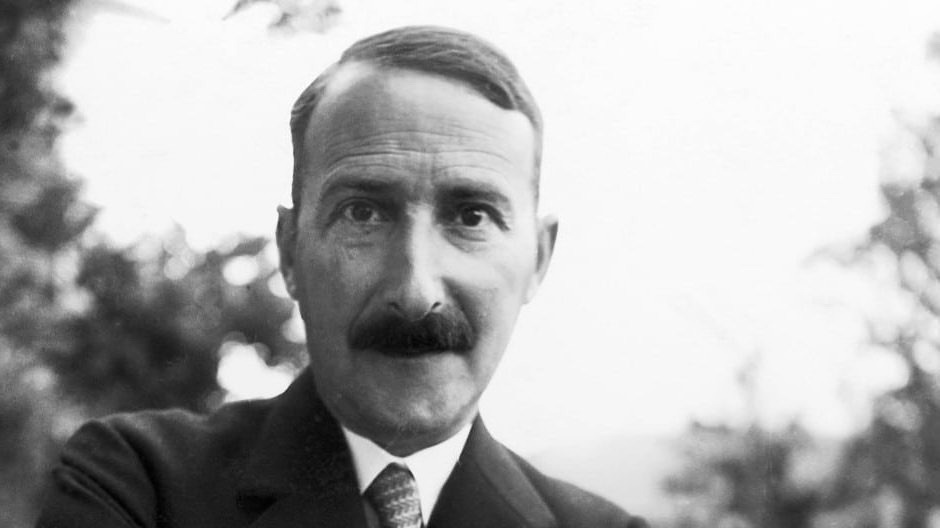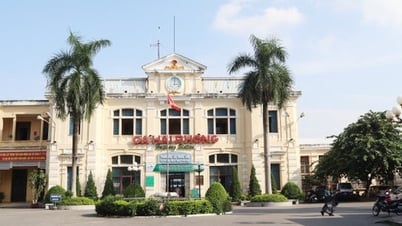See through the crowd
Among them, Twenty-four Hours in the Life of a Woman is considered one of his famous and excellent short story collections. Consisting of 8 works, the collection of stories shows Zweig's richness in many topics and perspectives.

Covering the collection of stories is the desire of women to escape social prejudice.
In this work, he does not stop at any single characteristic, but spreads out and has a very wide coverage of topics, characters, and contexts. For example, although both are about the freedom of women in love, the short story The Female Tutor and the story of the same name have different ways of development.
In The Governess , the perspective is placed on two children who are still full of innocence and trust. This shows the challenge of Zweig, when he applied many aspects of psychology to embody himself in the children. They have innocence, but also curiosity and sincerity.
When they saw their mother humiliating the teacher, when they saw that she had no way out… they were angry and wanted to stand up to protect Ms. Maan. From then on - just overnight, the two sisters entered adulthood, because they realized that life was too cruel, and people were too scary. This is similar to another work, The Secret That Burned the Heart , when it shows that Zweig always challenged and assimilated himself into different, impressive and very detailed perspectives.
Throughout the collection of stories, we always see the desire to escape from social prejudice of women. It must have originated from the period and the homeland where Zweig grew up - where the Austro-Hungarian society was somewhat patriarchal and austere, that he realized that people were not living as their nature. From there, he raised many questions, should a woman who pursues her passion be judged as a prostitute? And when can a widow love? It is in that line that Zweig presents different "life jokes", from which he shows a society that is still full of oppression.
They were people of perfect integrity, who had come to love with only kindness from the beginning. It was Madame Henriette who, out of a desire to save a future that had sunk into the mire, burst forth love, which enveloped her. In twenty-four hours a love could be born, and it came from a sensitive heart, not from the whim or the lust that people attribute to it.
And if the marriage becomes cold, when the lover does not want to care and concern, is it acceptable to approach another individual? Zweig does not justify the woman in the story Fear of this situation, but through it he tries to enter into the nature of marriage, to show us that it is fragile and needs care from both people. From there the lesson of altruism is transmitted gently.
A humanist
Zweig seemed to grasp the unique constitution of each person, he demonstrated that “a woman, at many times in her life, can be at the mercy of mysterious forces stronger than her will, that her intelligence only conceals a fear of human instinct, a fear of the devil-worshiping nature in her.”

Writer Stefan Zweig
So love is completely normal, it is the pursuit and desire of every person. Therefore, regardless of gender or social class, everyone deserves to have the love they desire. Zweig seems to encourage a spirit of the new era.
Therefore, works such as The Confusion of Feelings or A Dangerous Game have shown love from tragedy. And because they originated from progress as well as reason, after nearly a century, the short stories are still alive and extremely close to this moment, this period. It is not an exaggeration to say that Zweig was also a person who saw the future with extremely human instincts.
In addition to being a promoter of the spirit of the new era, a prophet or a humanist..., Zweig was also a very studious person. During his life, he traveled to many lands, so that the notes in his memoirs The World of the Past Days , the collection of portraits of characters The Bright Stars of Humanity ... are still present and alive in each passing day.
Among them, the short stories Mendel , the old bookseller and The Eyes of the Eternal Brother are taken from his own experiences across many cultural regions. Not only is Amok, the Malaysian madness set in Asia, but the above stories also show a unique Asian mystique, which we can easily find in another collection of stories by Nobel Prize-winning writer Rudyard Kipling about India.
Mendel - whose mind was so great that it was related to books, numbers and events, as well as the blind old man Rackner - who was always passionate about collecting art... were the precious gems and materials that Zweig admired, pursued and wanted to write about all his life.
They were completely ordinary people, but their contributions to human culture were enormous. It was here, from a position in the Old World, that Zweig leaned down to learn from them and to see them as masters to follow. This originated from the person he was, as well as the path he had traveled.
It was because of being born in a somewhat aging empire and the pain that both World Wars had brought, that Zweig was a writer, a short story writer with a deep humanity and a humble demeanor... who brought extremely soaring literary works and also pity for those who were too tired.
It can be said that Twenty-four Hours in the Life of a Woman is the representative work of Stefan Zweig's short story art, from which his talent was revealed, existed and passed down forever.
Stefan Zweig (1881 - 1942) was an Austrian writer. He was active in literature in the 1920s and 1930s. During that period, he was one of the most translated and popular writers in the world. In addition to novels and short stories, he also focused on historical research and produced many impressive works.
Source link
























![[Photo] General Secretary To Lam begins official visit to Russia and attends the 80th Anniversary of Victory over Fascism](https://vphoto.vietnam.vn/thumb/1200x675/vietnam/resource/IMAGE/2025/5/8/5d2566d7f67d4a1e9b88bc677831ec9d)




































































Comment (0)